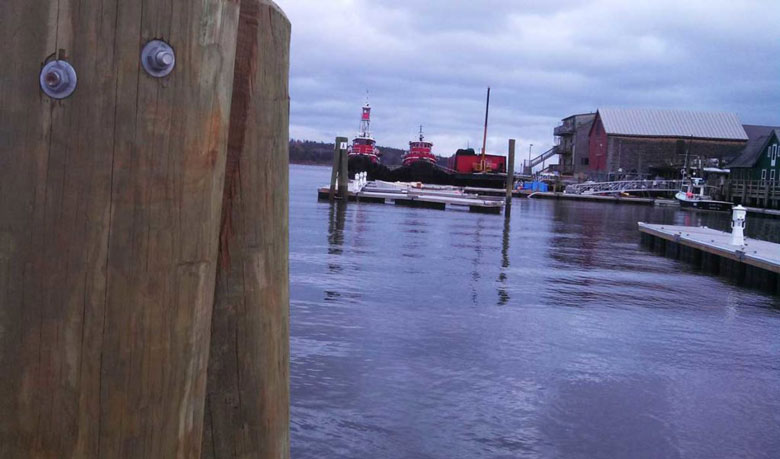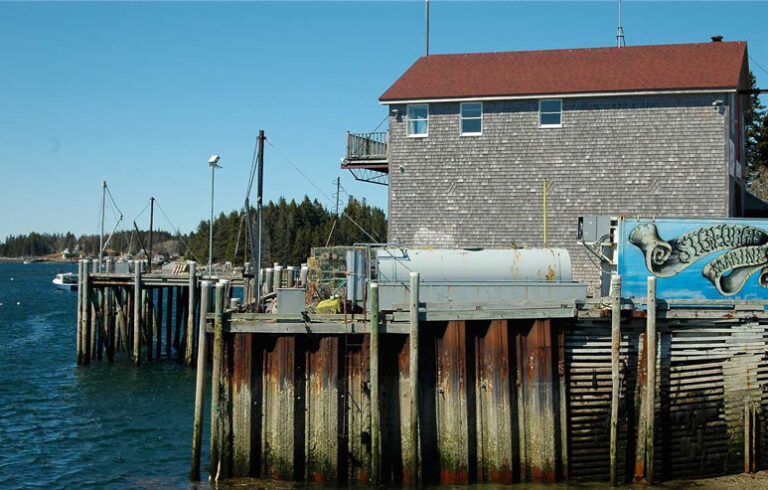Facilities manager. Juggler. Mediator. First responder. Diplomat. Code enforcer. These are some of the roles harbormasters fill, as revealed during a panel discussion hosted by Midcoast Women on March 13 at Rockport Public Library.
Kathy Given has been Belfast’s harbormaster for 30 years. She’s not sure whether she was Maine’s first female harbormaster, but she remembers that she was the only woman with that job title in the state when she started in 1994.
When she first moved to Maine in 1982, Given said, “Belfast was not really a place where most people wanted to go.” Now the city is a destination for mariners, who can “walk off the boat and provision, get dinner, go to a movie.”
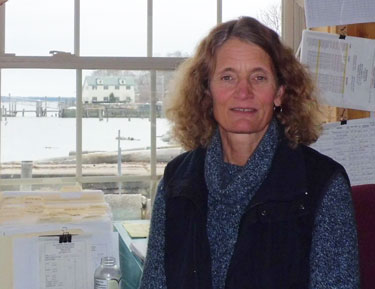
Givens said she has “always been a big proponent of diversity,” naming fishermen, rowers, kayakers, and school science programs as some of the various users of the harbor and its facilities.
However, balancing the competing needs of constituencies is key. For instance, she explained, “You can put a T-shirt shop anywhere, but you can’t put a fisherman anywhere.”
Like Givens, Rockport Harbormaster Abbie Leonard prioritizes harbor access for a wide range of people. She described her office as a fishbowl from which she juggles the needs and wants of many “strange bedfellows”—fishermen, taxpayers, transient boat owners, children.
Rockport finds ways to bring people together at the harbor, she said, through activities such as concerts and New Year’s Eve fireworks displays. The result, she said, is like a Norman Rockwell painting and “so much of what Maine should be.”
Leonard didn’t always aspire to be a harbormaster: She wanted to play for the Red Sox. That didn’t happen, and she managed marinas instead. Then, 16 years ago, her father told her that if she didn’t turn in her resume for the position of Rockport harbormaster, he’d bring it to the town office for her. She was hired and has held the job ever since.
Harbormaster is a year-round job, Leonard said.
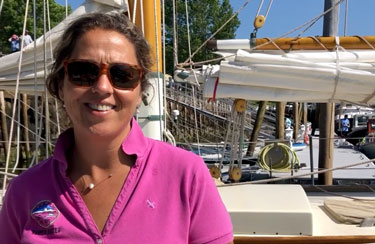
“Just because there’s no boats in the water [in winter] doesn’t mean the job is done.” Maintenance—and finding ways to fund it—is a concern regardless of the season.
The Federal Emergency Management Agency (FEMA) funds some of the repairs needed due to storm damage, but working with them “is a nightmare,” she said. “They want to spend a dollar to save a dime.”
FEMA funds projects that return damaged infrastructure to pre-storm condition, which doesn’t solve the problem, since pre-storm fixes don’t take climate change into account. For example, water has “come over” six times in her career, Leonard said—and half of those events occurred since Jan. 1 of this year.
Molly Eddy, a year and a half into her time as Rockland’s harbormaster, described herself as the “baby” of the three panelists. She applied to be assistant harbormaster “as a joke.” She got the position, her boss resigned six weeks later, and she has been in charge ever since.
Eddy, too, mentioned access, conflict resolution, and responding to storm damage as important parts of the job. Rockland, she said, has received funding to raise the middle pier, where the food trucks are, and also plans to raise Harbor Park at some point.
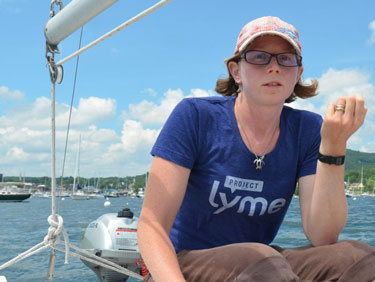
Making these changes requires an openness to diverse points of view. People will talk about sea level rise, she said, “if you take the buzzwords out. People working on the waterfront know about it in the way people sitting in their living rooms don’t.”
Given noted that Belfast, too, is working on a hazard mitigation plan.
“To have five substantial storms in a year and a half really wakes you up,” she said.
